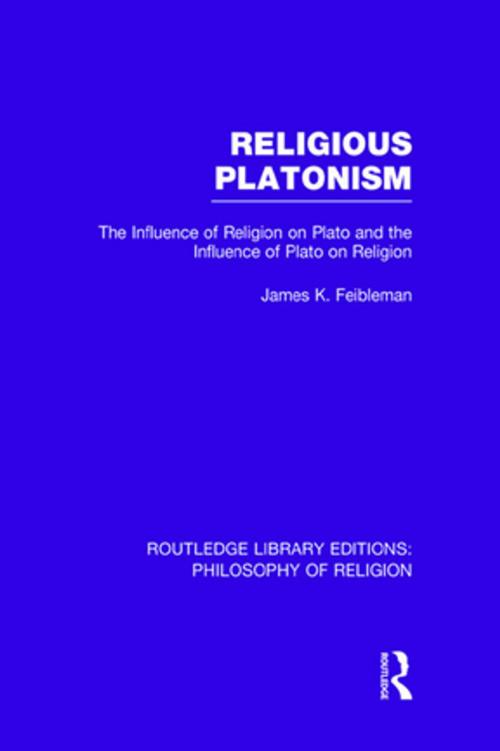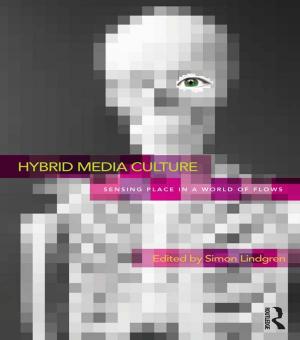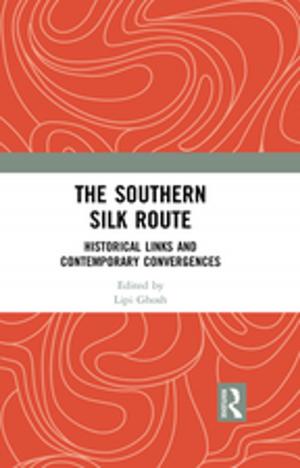Religious Platonism
The Influence of Religion on Plato and the Influence of Plato on Religion
Nonfiction, Religion & Spirituality, Philosophy, Religious| Author: | James Kern Feibleman | ISBN: | 9781134112777 |
| Publisher: | Taylor and Francis | Publication: | July 18, 2013 |
| Imprint: | Routledge | Language: | English |
| Author: | James Kern Feibleman |
| ISBN: | 9781134112777 |
| Publisher: | Taylor and Francis |
| Publication: | July 18, 2013 |
| Imprint: | Routledge |
| Language: | English |
In Plato’s Laws is the earliest surviving fully developed cosmological argument. His influence on the philosophy of religion is wide ranging and this book examines both that and the influence of religion on Plato.
Central to Plato’s thought is the theory of forms, which holds that there exists a realm of forms, perfect ideals of which things in this world are but imperfect copies. In this book, originally published in 1959, Feibleman finds two diverse strands in Plato’s philosophy: an idealism centered upon the Forms denying full ontological status to the realm of becoming, and a moderate realism granting actuality equal reality with Forms. For each strand Plato developed a conception of religion: a supernatural one derived from Orphism, and a naturalistic religion revering the traditional Olympian deities.
In Plato’s Laws is the earliest surviving fully developed cosmological argument. His influence on the philosophy of religion is wide ranging and this book examines both that and the influence of religion on Plato.
Central to Plato’s thought is the theory of forms, which holds that there exists a realm of forms, perfect ideals of which things in this world are but imperfect copies. In this book, originally published in 1959, Feibleman finds two diverse strands in Plato’s philosophy: an idealism centered upon the Forms denying full ontological status to the realm of becoming, and a moderate realism granting actuality equal reality with Forms. For each strand Plato developed a conception of religion: a supernatural one derived from Orphism, and a naturalistic religion revering the traditional Olympian deities.















